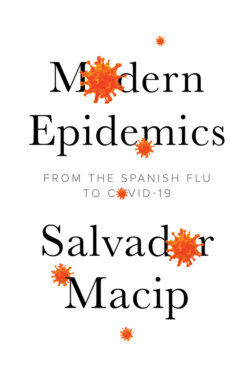Читать книгу Modern Epidemics - Salvador Macip - Страница 15
Peaceful passengers
ОглавлениеWe shouldn’t necessarily see microorganisms as a threat. On the contrary, coexistence with many of them is highly beneficial for humans and determines proper functioning of the organism. The human body, one of the most complex multicellular organisms in existence, consists of approximately 100 billion cells. But this needs to be clarified: I mean 100 billion human cells. If we are to be exact, we also need to count all the microorganisms that inhabit us. Initially, it was calculated that they might be ten times more numerous than our own cells, but more recent data suggest that a closer estimate would be one microbe for each human cell. In any case, we can venture that the human body is colonized by millions of microorganisms, of some 400 different species, which normally don’t cause any illness. Put together they would weigh a kilogram. These data are mind-boggling, enough to make us wonder what a human being really is. A mixture of highly specialized cells and microbes that live in harmony? From this standpoint, we are perhaps nothing more than a walking ecosystem in which a series of microorganisms peaceably survive.
The microbes that are always with us are not only freeloaders but ‘stowaways’ that are very important for our metabolism. Humans, like all other animals, depend on them to survive. From them, we obtain vitamins, nutrients and protection against infections caused by their more toxic kin. Cows, for example, couldn’t ingest grass without the help of the bacteria they have in their digestive tract, and neither could termites benefit from the cellulose in wood. There are plants we use as food, peas and beans for example, that need bacteria in order to fix the essential nitrogen from the sun.
Further proof of their importance is that it is thought that, when giving birth, mothers pass on to their children the ‘good’ bacteria that will settle in their digestive systems and protect them in the future. Hence, there are studies exploring what happens to babies born by caesarean, because these children haven’t had to pass through the vaginal canal that would equip them with their first microorganisms. It’s not yet sure what effect this might have on their future health.
